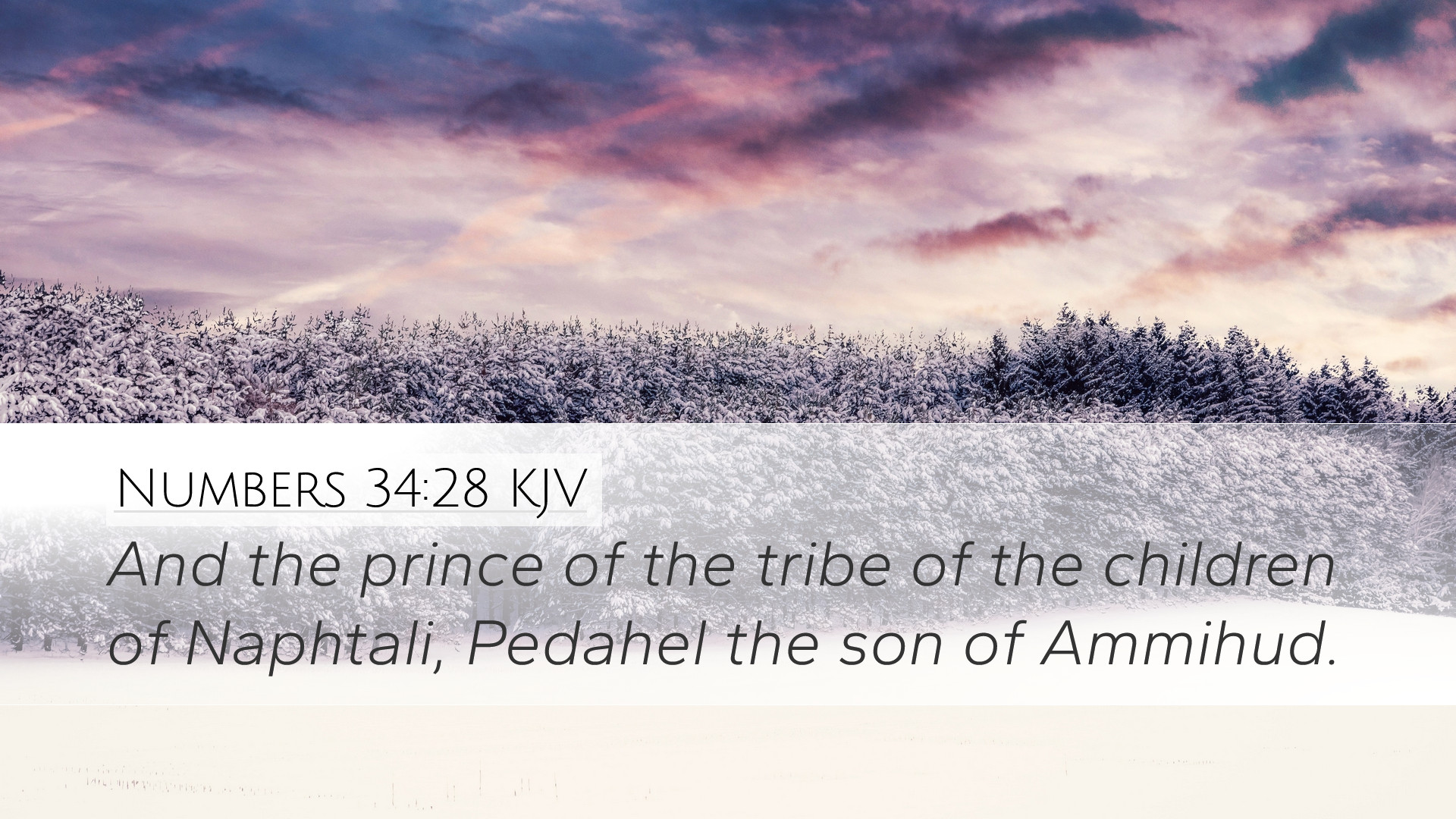Commentary on Numbers 34:28
Verse: Numbers 34:28 - "And of the tribes of the children of Gad, a ruler, Eliagah the son of Emmanuel."
Contextual Overview
This verse comes from the book of Numbers, which chronicles the time the children of Israel spent in the wilderness after their exodus from Egypt. Numbers 34 details the boundaries of the Promised Land and how the land will be divided among the tribes of Israel. This particular verse mentions a leader from the tribe of Gad, highlighting the importance of leadership in the allocation of land. The choice of Eliagah as a ruler underscores the organizational structure of the Israelites as they prepared to enter their new homeland.
Theological Insights
The appointment of leaders such as Eliagah offers profound insight into God’s desire for order and structure within His people. Albert Barnes notes the significance of leadership in fulfilling God’s promises. As the Israelites were about to claim the land promised to them, it was crucial that capable leaders guided them through the process. The names of leaders often carry a theological significance, representing their God-given roles within the community.
Divine Order in Leadership
Matthew Henry emphasizes the divine order established by God, which is reflected through the tribal leaders. It serves as an example for modern-day church governance, where God’s ordained leaders assist in guiding congregations. Leaders are not only appointed based on merit but are also divinely chosen to fulfill specific roles. Each tribe, including Gad, was represented by its leader, affirming that each group within the community has its unique responsibilities and roles under God’s overarching plan.
The Significance of the Tribe of Gad
The tribe of Gad plays a noteworthy role in the history of Israel, often noted for their military prowess and bravery. Adam Clarke points out that Gad was recognized as a strong tribe, whose warriors often engaged in cosmic battles on behalf of the Israelites. This positioning establishes an interesting dynamic when it comes to land distribution, as it reflects not only their rights to the land but also their responsibility to protect and maintain it.
Historical and Cultural Context
The cultural setting of Numbers is grounded in the ancient Near Eastern context, where tribal and familial affiliations were pivotal. Leaders in such societies were expected to uphold justice and order among the people they represented. Therefore, Eliagah’s designation as a leader for the tribe of Gad extends beyond mere administrative responsibility; it symbolizes a commitment to uphold the welfare of his people in accordance with divine will.
Practical Applications for Modern Leaders
- Leadership is a Divine Assignment: Just as Eliagah was chosen to represent his tribe, current leaders in churches and communities are also divinely appointed for service. This underscores the importance of seeking God’s guidance in leadership roles.
- Representation Matters: Each leader must understand their role in representing their community. Eliagah’s leadership signifies the need to advocate for those they serve, fostering a sense of belonging and protection.
- Understanding Strengths: The strengths of the tribe of Gad reflect the importance of recognizing and utilizing the unique gifts within a community. Leaders today should aim to discover and empower the strengths of their congregations.
Conclusion
Numbers 34:28, while seemingly a mere historical detail, encapsulates vital truths about leadership, organization, and community within the Israelite society. By reflecting on the Scriptures and the commentaries of esteemed theologians like Matthew Henry, Albert Barnes, and Adam Clarke, modern readers, pastors, and scholars can draw parallels to contemporary church leadership. As they engage with this verse, they are reminded of the importance of divine order and the responsibilities entrusted to each leader in order to fulfill God's promise and purpose for their communities.


